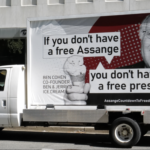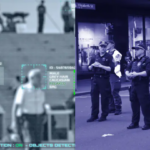Psychics and Fortune Tellers: Supernatural or Super-Illegal?

A Google search of the word ‘psychic’ reveals a never ending list of businesses offering their supernatural services for a fee.
From telephone psychics who charge by the minute through to expensive personalised face-to-face services costing hundreds of dollars per session. Services range from tarot card readings through to purported communications with those who have passed.
Whilst many are sceptical about supernatural powers, given the huge number of businesses offering such services it is clear that many consumers are willing to hand over their hard earned money for a possible glimpse into the future.
The debate between those who express faith in such powers and those who do not won’t end anytime soon. For each person who expresses scepticism, there is another who might have a personal story which they believe defies the laws of science.
However, absent any verifiable scientific evidence to support claims of supernatural powers, a question arises as to whether these self-proclaimed psychics are committing fraud by offering their services for a fee.
The Law
To prove fraud under section 192E of the Crimes Act 1900 NSW, the prosecution must satisfy a court beyond reasonable doubt that:
• Through their deception,
• A person dishonestly,
• Obtained property belonging to another, or obtained a financial advantage, or caused financial disadvantage to another.
To understand the difficulty in proving that a psychic has committed the offence of fraud, a closer examination of the element of “deception” is required.
“Deception”
In relation to “deception”, section 192B(2) provides that:
“A person does not commit an offence under this Part by a deception unless the deception was intentional or reckless”.
In other words, the prosecution must prove that the defendant – when providing their supernatural services – either intended to deceive, or at the very least was reckless in the sense they recognised the possibility they might deceive, and continued anyway.
To understand the difficulty in proving deception, one might consider a simple example and contrast it to the complexity of prosecuting a psychic. If a person writes a cheque and knew their bank account had no funds, it may not be too hard for the prosecution to prove they intended to deceive, or were reckless to that possibility. To discharge their burden, the prosecution might, for example, produce evidence that the person checked their nil bank balance on Monday morning and shortly thereafter wrote a cheque. The intention to deceive by writing a cheque that will inevitably bounce may be readily verifiable.
However, when a psychic professes that they have seen into your future, or have been able to communicate directly with a loved one for a handsome fee, it is harder for the prosecution to establish that they acted fraudulently. Unless the prosecution can prove the psychic intended to deceive or was reckless as to a possible deception, the prosecution case is likely to fail. In that regard, a psychic who claims to have a genuine belief in their powers could rarely be prosecuted as it would be almost impossible for the prosecution to prove they intended or were reckless as to the possibility of deception. After all, if they have a genuine belief in their own powers, then they could never be said to have an intention to deceive.
On the other hand, if the prosecution were to uncover evidence to the effect that the psychic did not have a genuine belief, or at least had doubts about their powers, it may be possible for the prosecution to prove dishonesty. The difficulty, of course, is obtaining such material, and unless the psychic admits they do not have supernatural powers, prosecuting them for fraud will always be an uphill battle.






